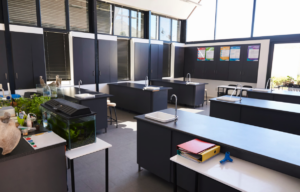Science Safety | Safer Articles

New Jersey Science Teacher Shortage? NJ DOE Has a Fix For You – Dont forget Safety.
An important regulatory change is now in effect in New Jersey schools to increase the number of science teachers. However, many local education officials are

Science Safety Lab Rules for Kids
Science experiments are vital for kids. They are useful in understanding the theories and concepts of science that can not be comprehended alone by science
Chemical Hygiene Officer
Learn More About the Chemical Hygiene Officer Certificate Pathway The responsibilities of this position require the District Chemical Hygiene Officer (CHO) to: Develop and implement

Schools in states governed by OSHA are required to have a Chemical Hygiene Officer
Schools in states that are governed by OSHA regulations are required to have a Chemical Hygiene Officer (CHO) to support, guide, and train their staff

New York requires every school have a Chemical Hygiene Officer (CHO)
2.0 Chemical Hygiene OfficerIn addition, OSHA requires that a school district designate someone as a chemicalhygiene officer.“Chemical Hygiene Officer means an employee who is designated

Chemical Hygiene Officers (CHO) are required in every School in California
Chemical Hygiene Officers (CHO) required in every School in California to ensure safer learnign environments. Get Certified as a CHO today.

New Jersey Lab Safety Mandates for Schools
Classroom demonstrations and student laboratory experiments must be handled carefully. Carrying out such activities without shielding and other precautions can have serious consequences: in some

A Call to Prioritize Safety in STEM and CTE: Addressing Overcrowded Classes and Other Critical Safety Issues
A Call to Prioritize Safety in STEM and CTE for Safer STEM and Safer CTE program Delivery

Example Chemical Hygiene Officer Job Description General Responsibilities
As required by the OSHA Standard regarding Occupational Exposure to Hazardous Chemicals in Laboratories (OSHA’s Laboratory Standard 29 CFR1910.1450). The Chemical Hygiene Officer will work

The Importance of Chemical Hygiene Plans in School Districts
The need for more awareness of chemical hygiene plans across all school levels and the cavalier attitude towards safety are concerns in school districts.

Safety Training in STEM and CTE Programs a Necessity
Safety training is essential for STEM and CTE fields. Learn why it’s necessary and how to get started.

Dissections in Schools- Traditional vs. Digital
Traditional and digital dissections allow students to gain valuable STEAM knowledge with some advantages and disadvantages using each method.


